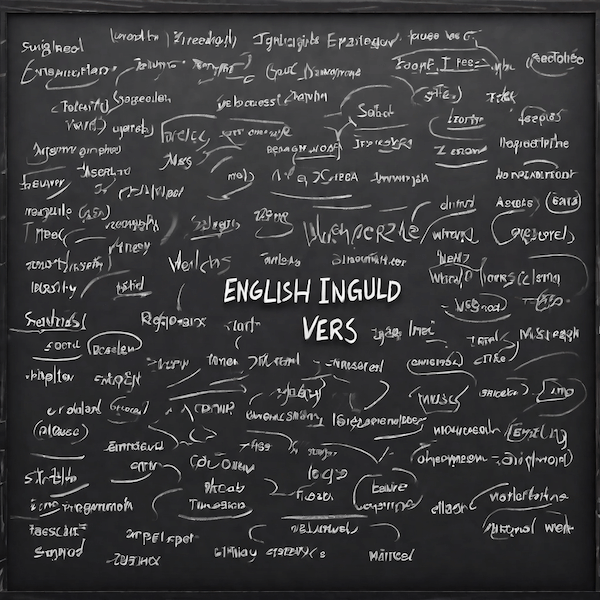
Welcome, language enthusiasts! Embarking on a journey to learn English vocabulary is like unlocking a treasure chest filled with the keys to effective communication. Whether you’re a beginner or looking to enhance your language skills, this guide is tailored just for you. Let’s dive in without further ado!
Why Mastering English Vocabulary Matters
Building Blocks of Communication
In the vast tapestry of language, words are the building blocks that construct our thoughts and ideas. Mastering vocabulary is like having a well-stocked toolbox, ready for any verbal task life throws your way.
Enhancing Expressiveness
Ever felt the frustration of not finding the right words? A rich vocabulary allows you to express yourself clearly and precisely, transforming your thoughts into eloquent speech.
How to Start Your Vocabulary Journey
Reading: Your Vocabulary Gym
Just as a gym builds your physical strength, reading exercises your linguistic muscles. Dive into books, articles, and even captivating blogs. The more you read, the more words you absorb effortlessly.
Word-a-Day Habit
Make a habit of learning a new word every day. It’s like adding a brick to your vocabulary mansion. Soon, you’ll have a lexical estate that impresses everyone.
Fun and Interactive Ways to Learn
Word Games: Play Your Way to Fluency
Why not turn learning into a game? Engage in word puzzles, crosswords, and word association games. It’s an entertaining way to reinforce your vocabulary without feeling like a tedious task.
Flashcards: Portable Learning Partners
Create flashcards with a word on one side and its definition on the other. These pocket-sized companions turn any dull moment into an opportunity to learn.
Deep Dive: Advanced Vocabulary Techniques
Thematic Learning: Words in Context
Organize words by themes or topics. When words are connected, they stick better. It’s like creating a mental map where each word has its own neighborhood.
Mnemonics: Memory Hooks
Ever struggled to remember a word? Mnemonics are memory aids that make retention a breeze. Transform abstract words into vivid images or stories for easy recall.
The Role of Technology in Vocabulary Mastery
Language Learning Apps: Your Pocket Tutor
Harness the power of technology with language learning apps. These personalized tutors make learning vocabulary convenient and engaging. From pronunciation to usage, they’ve got you covered.
Online Communities: Learning Together
Join online communities where language enthusiasts share their knowledge. Engage in discussions, ask questions, and learn from others. The collective wisdom of a community is a vast resource.
Common Pitfalls and How to Overcome Them
Procrastination: Breaking the Cycle
Putting off learning? Break the cycle by setting small, achievable goals. The key is consistency. Little by little, day by day, you’ll conquer the mountain of words.
Overwhelming Vocabulary Lists
Ever encountered a never-ending vocabulary list? Break it into bite-sized portions. Focus on a manageable chunk each day, ensuring quality over quantity.
Conclusion
Congratulations! You’ve embarked on a journey to master English vocabulary. Remember, it’s not a race but a delightful exploration. With patience, consistency, and the right tools, you’ll find yourself wielding words with finesse in no time.
Frequently Asked Questions
How long does it take to build a robust vocabulary?
- Building a vocabulary is a gradual process. Consistent effort over several months yields significant results. Rome wasn’t built in a day, and neither is an impressive vocabulary!
Are there shortcuts to learning vocabulary faster?
- While there are no magical shortcuts, incorporating diverse learning methods can expedite the process. Mix reading, games, and apps to keep your learning dynamic.
Is it necessary to learn formal and informal vocabulary?
- Yes! Understanding both formal and informal language is crucial for effective communication in various settings. It’s like having a versatile wardrobe for different occasions.
How can I remember complex words easily?
- Mnemonics, associations, and using words in daily conversations can aid memory. Additionally, practice and repetition solidify your grasp on complex words.
What should I do if I forget a word I’ve learned?
- It’s normal to forget, but don’t be discouraged. Revisit the word, use it in sentences, and create associations. The more connections you build, the more likely you’ll remember.
Embark on your vocabulary journey with enthusiasm and curiosity. Remember, every word learned is a step closer to mastering the beautiful language of English!
Leave a Reply